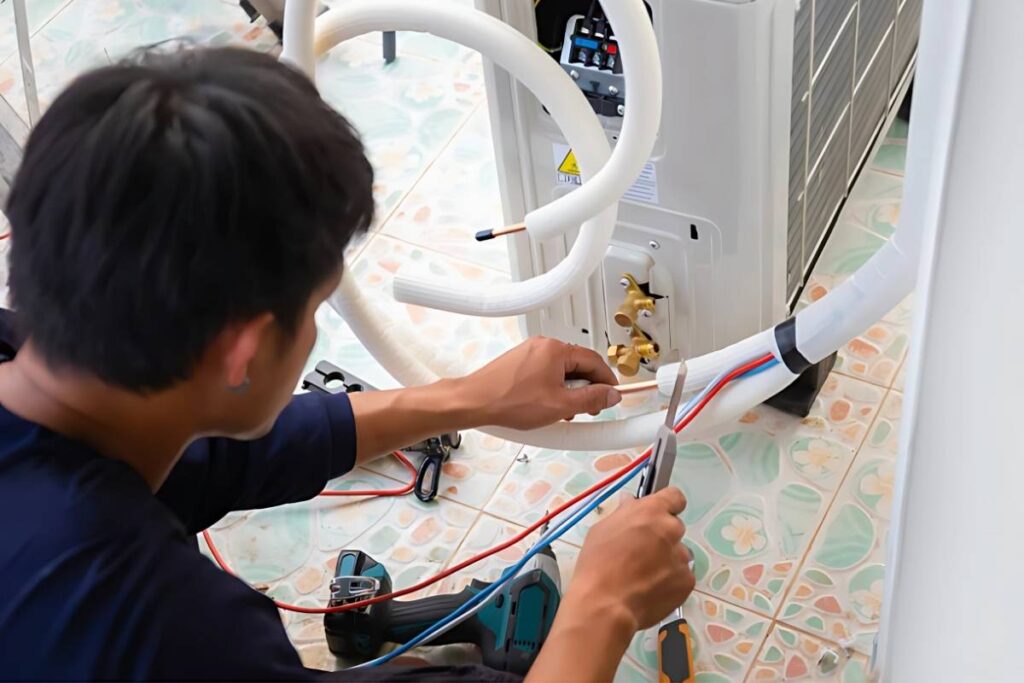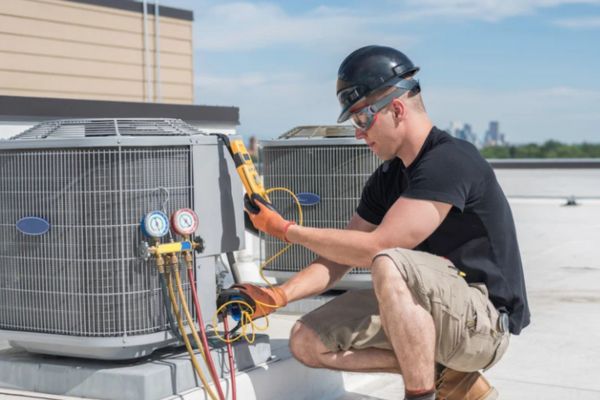When it comes to improving your home’s HVAC system, understanding the process of comparing contractor quotes and estimates is vital. Whether you’re looking to replace an outdated air conditioner or upgrade an old furnace, being informed about the potential costs and how they are presented can save you time, money, and hassle.

Key Differences Between Estimates and Quotes
Before diving into the costs of your HVAC project, it’s essential to understand the differences between estimates and quotes. These two terms may seem interchangeable, but they serve distinct purposes during the project planning process.
- Estimates are general cost projections. Based on the contractor’s experience and knowledge, an estimate gives a ballpark figure of how much the project might cost. It can vary by 10-15%, meaning that the final cost may be higher or lower than the original estimate.
- Quotes/Bids, on the other hand, are more detailed documents. A quote is a fixed price for the job and outlines every aspect of the project, from labor to materials, warranties, and even disposal fees. Once signed, a quote becomes a binding contract between you and the contractor.
Understanding this difference helps set clear expectations on how the costs are determined. While estimates give a rough idea, quotes lock in your pricing.
Evaluating HVAC Replacement Cost Quotes
Once you have multiple quotes in hand, it’s time to evaluate them carefully. A good quote is not just about numbers — it’s about transparency, detail, and understanding the scope of the project.
Your contractor’s quote should list every aspect of the project. This includes:
- Materials: Type of HVAC system and any necessary parts or equipment.
- Labor costs: The hourly rate and projected hours for the project.
- Additional factors: Fees for permits, old system removal, and any other costs related to the project.
For example, the average cost for replacing an HVAC system can vary significantly depending on the type and size of your home:
- Ductless air conditioning systems typically range from $3,000 to $8,000 for a 2,000-square-foot home.
- Smart thermostats can cost anywhere from $30 to $300, depending on the model and features.
Investing in an energy-efficient system could save you in the long run. Newer HVAC systems consume 30-50% less energy than older models, potentially cutting energy bills by 20-40%, according to the Department of Energy.
If you’re concerned about financing, you have options. Financing can be part of your contractor’s quote. Alternatively, you can look into external loan options or programs like Property Assessed Clean Energy (PACE), which allows homeowners to finance energy efficiency improvements.

Why HVAC Replacement Costs May Vary
It’s common for homeowners to assume that HVAC Replacement will cost about the same as the original installation, but this isn’t always the case. There are a number of factors that can cause quotes to vary significantly.
Advances in technology, the availability of more energy-efficient models, and the evolving standards in the HVAC industry can all influence cost. The climate in your area, market fluctuations, and manufacturers’ pricing can also affect the overall price. As a result, you may notice that two similar projects could have entirely different bids.
Recognizing Factors Behind High and Low Bids
Quotes and estimates can vary widely depending on the contractor, the type of HVAC system, and other variables. But how do you know what makes a bid high or low? Here’s what you need to consider.
Factors Leading to Higher Bids
- High-end contractors: Contractors with a well-established reputation, more equipment, and larger crews often charge more due to higher overhead costs.
- Type of HVAC unit: Some systems are more expensive due to their features. For instance, a ductless air conditioning system may cost anywhere from $3,000 to $8,000 for a mid-size home.
- Additional warranties: Many contractors offer extended warranties that increase the upfront cost but provide extra protection in the long run.
- Hidden costs: Items like permits, regulatory compliance, and local taxes can add to the overall expense. For example, if your HVAC system’s Seasonal Energy Efficiency Ratio (SEER) rating is lower than 13, it could trigger regulatory fees.
Factors Leading to Lower Bids
- Lack of proper insurance: Some contractors might offer lower prices if they do not carry the proper insurance, potentially leaving you liable for damages or injuries during the project.
- Missing local policy knowledge: Inexperienced contractors might skip important steps in the regulatory process, reducing their fees but increasing the risk for you.
- Desperation for work: Contractors offering extremely low bids might be desperate for business. While this could lower your initial costs, it may lead to subpar work and more expensive fixes down the line.
Always be wary of bids that are extremely low or extremely high. Ask your contractor to explain why the quote is priced the way it is.
Finding the Right Contractor for Your HVAC Project
Now that you understand the costs, it’s time to find the right contractor. Choosing the best contractor for your HVAC project is critical. Poor installation can lead to inefficiencies, system breakdowns, and even safety hazards.
To vet contractors effectively:
- Check their websites for professionalism and up-to-date information.
- Look for reviews on third-party sites and make sure the contractor is accredited by the Better Business Bureau (BBB).
- Ensure the contractor has a physical address and not just a P.O. Box, which could be a red flag.
Don’t be afraid to negotiate your HVAC project’s pricing. Many homeowners feel hesitant about asking for discounts, but discussing your budget and asking for cost adjustments can help you avoid unnecessary expenses.
Agree with your contractor that any unexpected costs should be presented in writing before the project proceeds. This will prevent budget overruns and help you stay on track.
Keeping Records and Paperwork Organized
Finally, always keep detailed records of your HVAC project. This includes saving all estimates, quotes, contracts, and communications with contractors. Having organized paperwork will allow you to track progress, verify warranties, and ensure everything is in order should any issues arise after the project is completed.
Understanding your HVAC contractor quotes and estimates can help you make informed decisions, save money, and avoid costly mistakes. By comparing multiple quotes, asking the right questions, and negotiating prices, you’ll be better prepared to get the most value from your HVAC project while staying within your budget.


